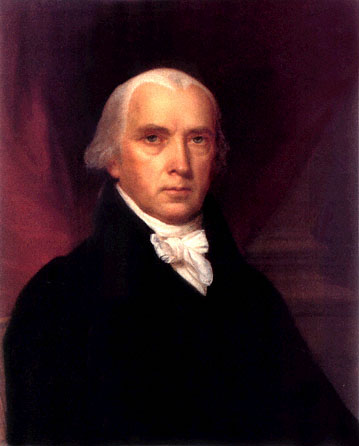 One of the most-visited posts on these localized interwebs is my original post about the Commerce Clause, in which James Madison — author of the Commerce Clause — says that Jack M. Balkin, J.D., Ph. D doesn’t understand the Constitution. In fact, if you Google “Jack M. Balkin J.D. Ph.D” that post still comes up near the top.
One of the most-visited posts on these localized interwebs is my original post about the Commerce Clause, in which James Madison — author of the Commerce Clause — says that Jack M. Balkin, J.D., Ph. D doesn’t understand the Constitution. In fact, if you Google “Jack M. Balkin J.D. Ph.D” that post still comes up near the top.
This is one of my life’s most important accomplishments.
And really, I considered that matter resolved. Jack M. Balkin made a hilariously uninformed comment about the Constitution and I laughed at him online. Water under the proverbial bridge.
So color me surprised that Jack M. Balkin, J.D., Ph. D is back in the news making a mockery of Yale Law School once again.
This go around, Jack M. Balkin, J.D., Ph. D has prostituted himself for the cause of President Obama’s debt ceiling powers, saying (originally in the New York Times, but then in this poorly-researched tripe):
The words of the provision are in important ways quite vague. “Nobody would argue,” said Sanford Levinson, a law professor at the University of Texas, “that Section 4 is clear in its meaning, other than at the time everyone thought that the South, if they ever got back in control, would not pay Civil War debt.”
But Jack M. Balkin, a law professor at Yale, said it was possible to infer a broader principle.
“You’re not supposed to hold the validity of the public debt hostage to achieve political ends,” Mr. Balkin said. He added, though, that “Section 4 is a fail-safe that only comes into operation when everything else is exhausted.”
Surely, the 14th Amendment must be ambiguous for Jack M. Balkin, J.D., Ph. D. to see in it every power of the party he supports…right? Take it away, actual relevant text of the 14th Amendment!
The validity of the public debt of the United States, authorized by law, including debts incurred for payment of pensions and bounties for services in suppressing insurrection or rebellion, shall not be questioned. But neither the United States nor any State shall assume or pay any debt or obligation incurred in aid of insurrection or rebellion against the United States, or any claim for the loss or emancipation of any slave; but all such debts, obligations and claims shall be held illegal and void.
Jack M. Balkin, J.D., Ph. D, who wants you to take him seriously, really, thinks that this somehow overrides earlier parts of the Constitution.
Specifically:
All Bills for raising Revenue shall originate in the House of Representatives; but the Senate may propose or concur with Amendments as on other Bills.
Article 1, Section 7, Clause 1, Jack.
The Congress shall have Power…To borrow Money on the credit of the United States;
Article 1, Section 8, Clause 2, Mr. Balkin.
No Money shall be drawn from the Treasury, but in Consequence of Appropriations made by Law; and a regular Statement and Account of the Receipts and Expenditures of all public Money shall be published from time to time.
Article 1, Section 9, Clause 7, Jackie.
(Because Googling is hard. I give Jack M. Balkin, J.D., Ph. D the actual text of the Constitution.)
Jack M. Balkin, J.D., Ph. D. would have you believe that the 14th Amendment gives his President some new, mystical power to do what Jack wants him to do. He’d have you believe that the 14th Amendment does whatever the crap he wants it to instead of, y’know, what it says: eliminates the debt incurred by the Confederate states during the Civil War. He’d have you believe that the 14th Amendment approaches in any possible way the idea that the House is no longer in charge of budgets simply because Jack M. Balkin, J.D., Ph. D. doesn’t like the budget they’re proposing.
Jack M. Balkin still doesn’t understand the Constitution.
